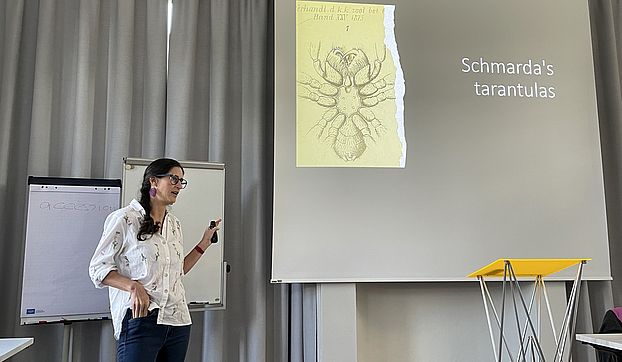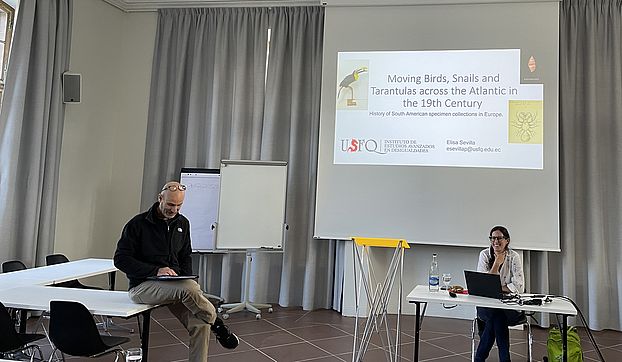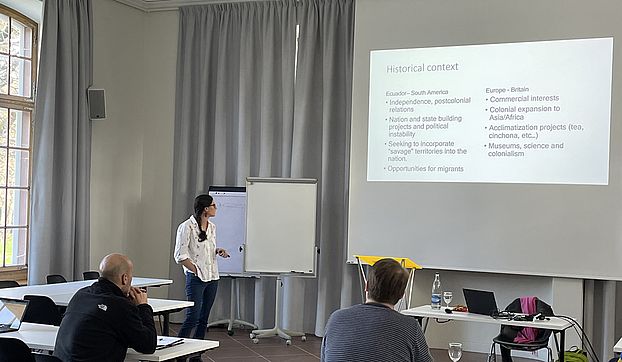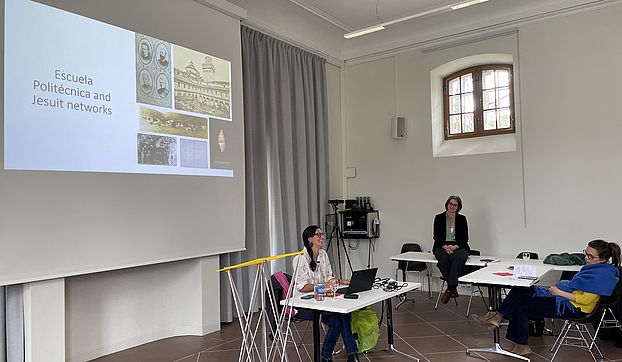/ News, Forschung, Events
Elisa Sevilla´s talk on natural History Collections
On 2 April 2024, Elisa Sevilla, professor of history at the San Francisco de Quito University, delivered a talk at the Institute for European Global Studies about her latest research on “Moving birds, snails, and tarantulas across the Atlantic in the 19th Century: History of the South American specimen collections in Europe.”
Her presentation, jointly organized by the Institute for European Global Studies and the Department of History at the University of Basel, delved into the movement of natural history collections from Latin America (primarily Ecuador, Colombia, and Peru) to Europe. Grounded in the discourse of global knowledge circulation within the history of science, Sevilla elucidated how various species were part of a broader scientific network spanning the Atlantic world during the 19th century. She structured her talk around two distinct case studies, each illuminating different dimensions of these scientific exchanges.
Firstly, Sevilla examined Ludwig Schmarda's travels to Ecuador in the 1850s, demonstrating that naturalists were not only engaged in teaching indigenous people, conducting research and missionary work, but also collected various species, including tarantulas, which were later incorporated into the natural history collections of Europe. Secondly, she explored the endeavors of the German Jesuit naturalists Christian Boetzke and Theodor Wold in Latin America during the 1870s, revealing similar activities as their extensive collections of snails and birds traversed the Atlantic and found their way into institutions such as the University of Konstanz and the British Natural History Museum. In sum, Sevilla's lecture underscored how animals were integrated into a comprehensive transnational scientific network that was characterized by the circulation of goods, knowledge, and a multitude of human and non-human agents.
Elisa Sevilla is aprofessor of history and a researcher at the Institute for Advanced Studies in Inequalities at the San Francisco de Quito University. She holds a PhD in Social Sciences from the Latin American Faculty of Social Sciences (Flacso, Ecuador). Her publications delve into the history of knowledge circulation, encompassing expeditions, collections, museums, local scientists, and their transatlantic networks during the 19th century. In 2016, her book titled "Evolutionism in America and Europe: Anthropology, Biology, Politics, and Education" was awarded the Isabel Tobar Guarderas Award in Social Sciences from the Municipality of Quito (Ecuador). Her platform "reducirriesgosgosenquito.com" earned a Special Mention in Science, Technology, and Environment at the International Festival of New Non-Fiction Narratives (FINNOF, Argentina) in 2022.




